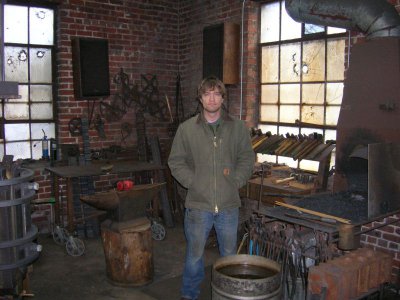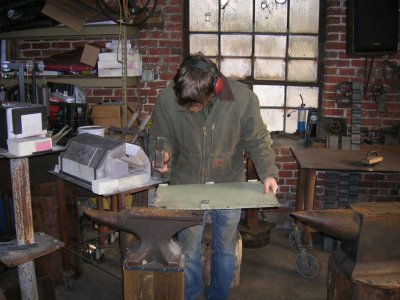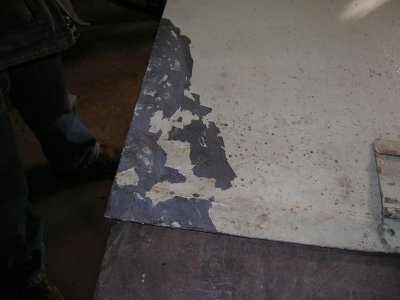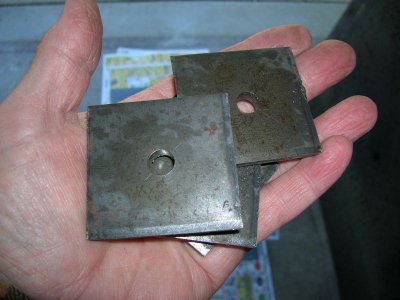- Joined
- Oct 11, 2013
- Messages
- 90
Hello to All;
I had some bent up metal to straighten out, and thought it would be fun to go by the local blacksmith's shop and see what he could do for me.
Lucas House runs Iron House Forge (www.ironhouseforge.com) in Raleigh, NC, and is quite a talented guy. He has done some elaborate 'commissions' and does small jobs as well. He is an NC State Graduate who decided to hang around after graduation (originally from the Asheville area), and collaborate with other crafty people in a local group call the "The Ant Farm".

So I brought him this bent up door from an old surplus machine stand, and he used his hammer and anvil to straighten it out:

I thought he might fire up the forge and get it hot, but he recommended 'cold forming' due to the time involved, and the possibility of lead paint on the door:

Anyway, he got the job done in short order, while I observed, wearing the required hearing protection...as I thanked him and got ready to leave, I noticed he had an Iron Worker, and asked if he could punch out some base plates for my Atlas 10F mounting:

About 3 minutes later, it was all done. I gave him a $20 and we both happily parted company.
If you get an opportunity to support your local craftspeople, please do so. It's great to see some of the Old World skills still at work!
Lou O.
I had some bent up metal to straighten out, and thought it would be fun to go by the local blacksmith's shop and see what he could do for me.
Lucas House runs Iron House Forge (www.ironhouseforge.com) in Raleigh, NC, and is quite a talented guy. He has done some elaborate 'commissions' and does small jobs as well. He is an NC State Graduate who decided to hang around after graduation (originally from the Asheville area), and collaborate with other crafty people in a local group call the "The Ant Farm".

So I brought him this bent up door from an old surplus machine stand, and he used his hammer and anvil to straighten it out:

I thought he might fire up the forge and get it hot, but he recommended 'cold forming' due to the time involved, and the possibility of lead paint on the door:

Anyway, he got the job done in short order, while I observed, wearing the required hearing protection...as I thanked him and got ready to leave, I noticed he had an Iron Worker, and asked if he could punch out some base plates for my Atlas 10F mounting:

About 3 minutes later, it was all done. I gave him a $20 and we both happily parted company.
If you get an opportunity to support your local craftspeople, please do so. It's great to see some of the Old World skills still at work!
Lou O.
